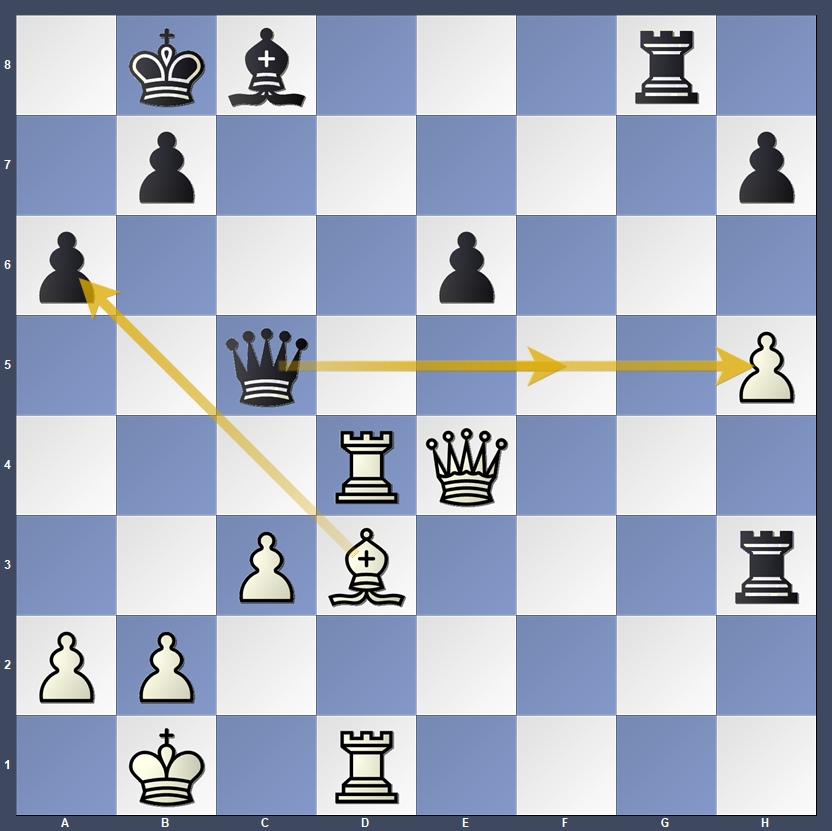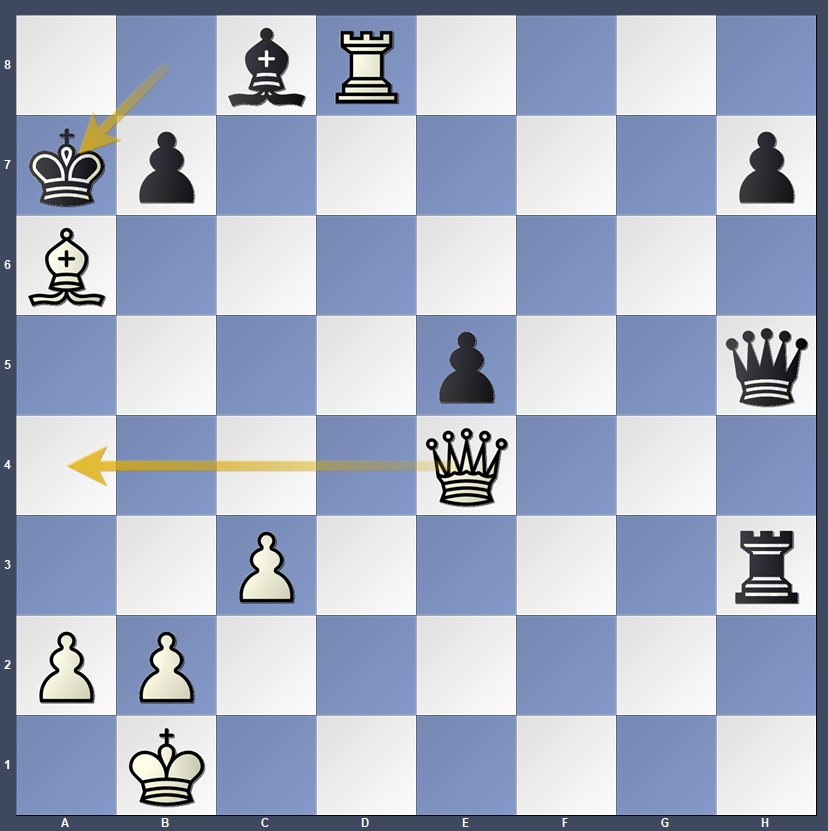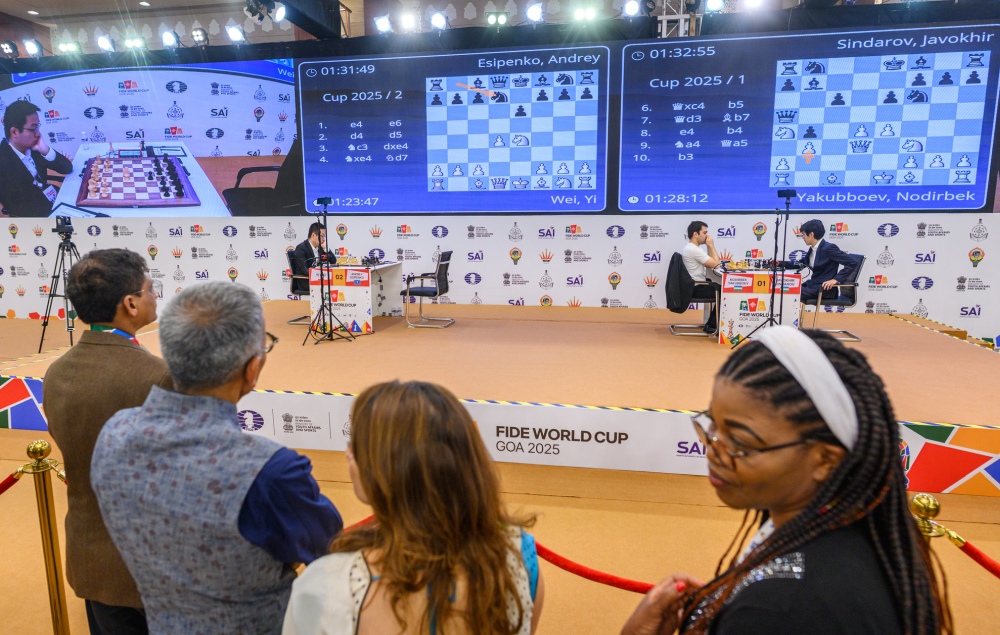
After a quiet rest day yesterday, the players returned to the hall where they have been competing for the last twenty days. A new stage setup elevated the boards, symbolic and fitting for the spectacle that the final rounds of the FIDE World Cup promise to bring. Today marked game one of the semifinals, and although both matches, Wei Yi vs Andrey Esipenko and Nodirbek Yakubboev vs Javokhir Sindarov, ended in draws, they were anything but uneventful. Deep preparation, opening surprises, time pressure and several only-move moments defined the day.
Grandmaster Wei Yi, as has become routine, was the first to arrive, followed shortly by his opponent Grandmaster Andrey Esipenko. With a few minutes to spare before the round began, both sat quietly at the board, focused and still. Grandmaster Nodirbek Yakubboev arrived next, carrying his usual five bottles of water. Just before the clocks were started, the ceremonial first move took place, and moments later a slightly flustered and narrowly on-time Javokhir Sindarov entered the hall and took his seat opposite his Uzbek teammate.
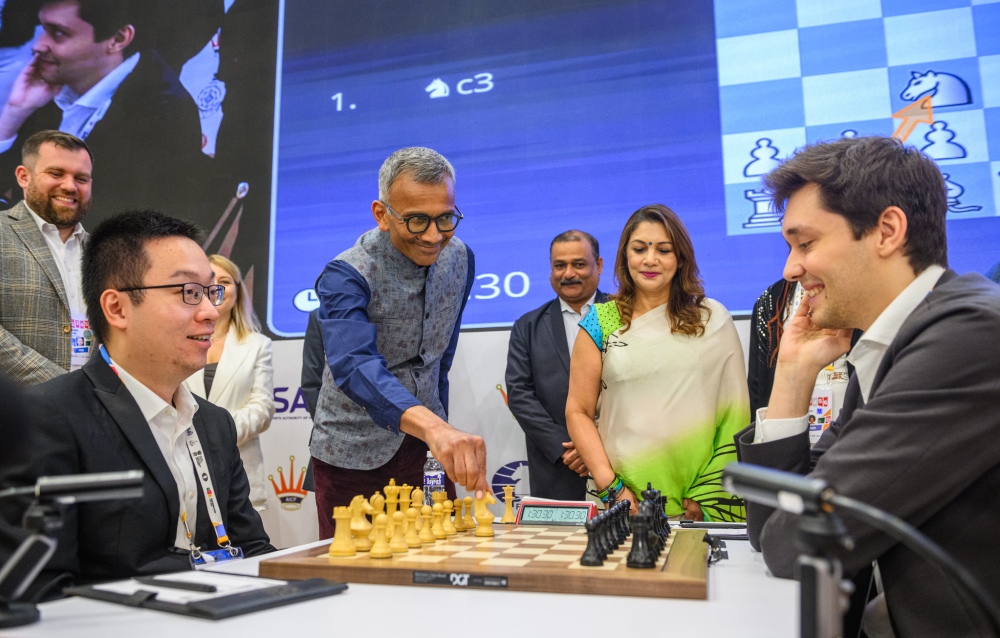
Today’s first move on the board between Wei Yi and Esipenko was made by Mr. Anup Shah, Managing Director of Resort Rio Goa, and Mrs. Alpa Shah, Director of Resort Rio Goa, two people who have led the wonderful hospitality provided to us throughout the last month.
This month of remarkable chess has brought us to these intense final stages. As Grandmaster Fabiano Caruana, the first qualifier to the 2026 FIDE Candidates, stated online, the World Cup is an incredibly difficult tournament and regardless of how well one performs, only three participants leave truly happy: the three Candidates qualifiers. Watching the field shrink after every round has been bittersweet. With players departing every few days, the dining hall has grown quieter. And knowing that one of these four semifinalists, after fighting so hard to reach this point, will soon join the list of 202 eliminated players feels equally, if not more, bittersweet.
Still, this is the nature of the event. Success here demands skill, stamina and a measure of luck.
Semifinals Game 1 results:
- Wei Yi ½ – ½ Andrey Esipenko
- Nodirbek Yakubboev ½ – ½ Javokhir Sindarov
Wei Yi (2752) vs Andrey Esipenko (2693)
The first surprise of the day came immediately when Esipenko met Wei Yi’s 1.e4 with 1…e6. It was the same French Defense that the Chinese number one had successfully employed in his first quarterfinal game against Arjun Erigaisi.
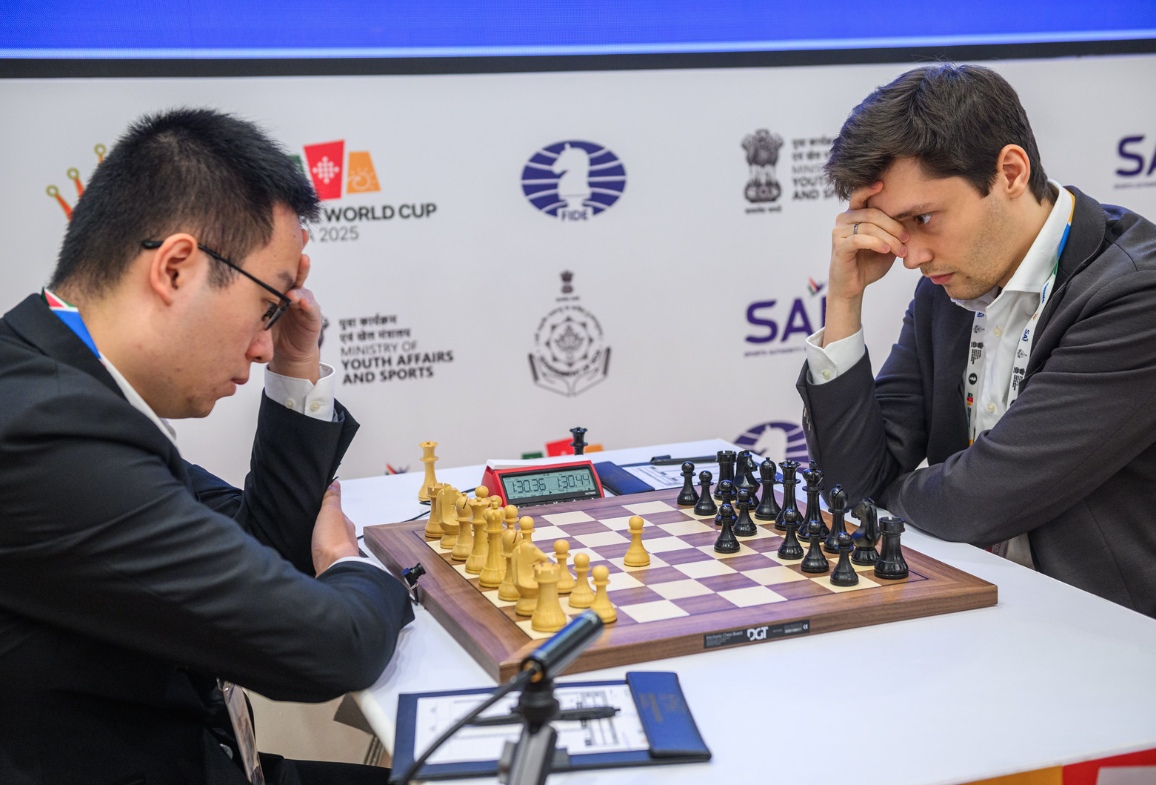
With a rest day available for preparation, unexpected choices made strategic sense, and Esipenko’s decision became even more logical when it became clear that he was not heading into a main line, but the Rubinstein Variation: 1.e4 e6 2.d4 d5 3.Nc3 dxe4 followed by 4.Nxe4 Nd7. It was reasonable to assume that Wei Yi may not have deep practical experience here. Although initially caught off guard after anticipating what he considered a guaranteed Italian, our commentators Grandmasters Peter Leko and Jan Gustafsson quickly agreed that this was a clever and well-timed choice by Black.
Wei Yi appeared taken aback by the opening and took his time before committing to a structure and a plan. Esipenko essentially won the opening phase, reaching a slightly better position with two bishops and holding a significant time advantage. Wei Yi, on the other hand, found himself struggling to find chances for activity while also feeling the growing pressure of the clock. Then, suddenly, everything turned.
A critical nuance required Black to play 27…Qf5 to remove White’s queen from the center before taking the pawn on h5. That line would have left White with an inferior but holdable position – requiring accuracy. Instead, Esipenko played the immediate 27…Qxh5, and after several minutes of calculation, Wei Yi unleashed the stunning 28.Bxa6! The bishop cannot be taken because the Black king would be exposed to decisive threats.
The game continued 28…e5 29.Rd8 Rxd8 30.Rxd8 Ka7. Black attacked the bishop and threatened with 31…Bf5 but another incredible only-move followed instantly:
31.Qa4! which drew applause in the studio from Peter Leko. The game then concluded with 31…bxa6 32.Rd7+ Bxd7 33.Qxd7+ Kb6, after which the players agreed to a draw due to an unavoidable three-fold repetition.
Being caught in deep preparation and finding yourself worse as White in a World Cup semifinal is never easy, but Wei Yi once again showed why he is one of the strongest performers of the event. He held his nerve, calculated with precision under extreme pressure, and found the correct moment to strike. Esipenko has previously said that luck is a necessary ingredient for success in the World Cup, and today it was his opponent who had that combination of accuracy and good fortune.
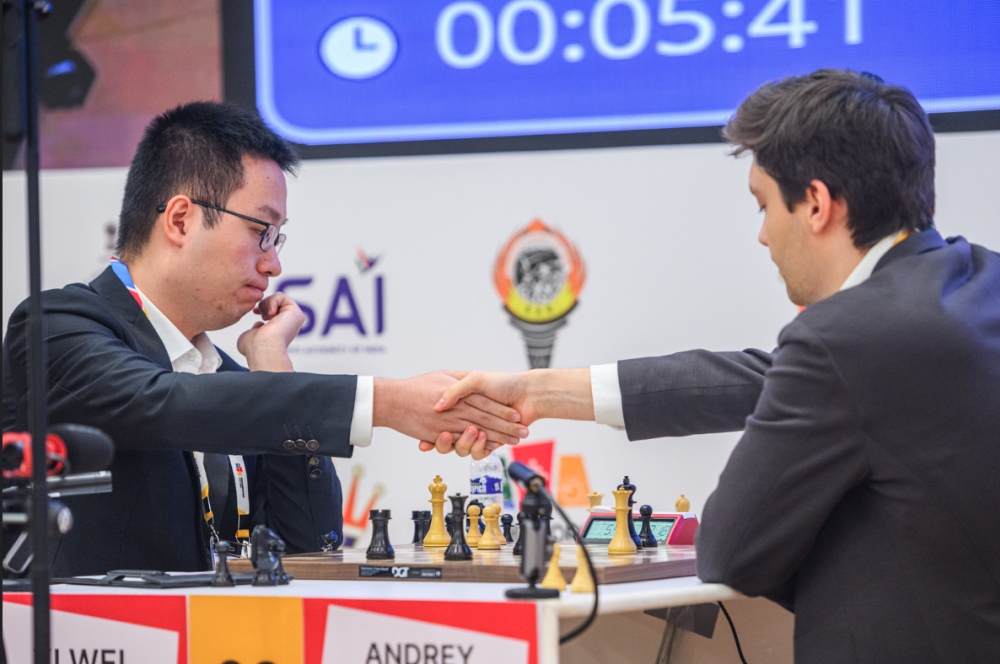
Nodirbek Yakubboev (2689) vs Javokhir Sindarov (2721)
Despite arriving slightly late, Sindarov seemed relaxed and confident. This was evident not only from his quick early moves and usual pacing around the hall, but also from the enthusiastic high-five he exchanged with his board neighbour Andrey Esipenko as they crossed paths in the opening minutes.
Yakubboev, who arrived with the benefit of two consecutive rest days after avoiding quarterfinal tiebreaks, came armed with strong preparation against Sindarov’s Semi-Slav, the same opening they had played in their last two classical encounters. White opted for a sideline with 5.Qd3, but Black appeared completely prepared and unfazed, blitzing out correct theory as if he had predicted it.
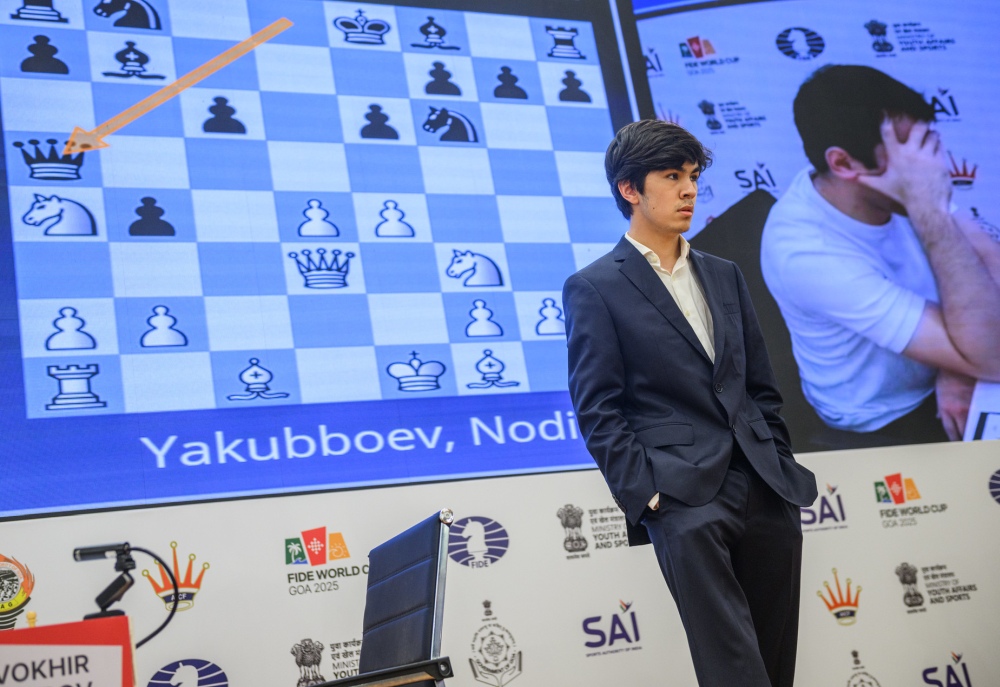
Soon, in fact, it was Yakkuboev who seemed surprised, spending 23 minutes on his 11th move despite Black having played only natural, expected moves.
Despite this sharp start, nothing complicated emerged. Once both players were out of theory, the position settled, and they navigated it with great accuracy. After trading down to an even endgame, where only White could really push for something, Black offered a draw on move 30, which Yakubboev accepted. It was a calm and unsurprising beginning for two players who know each other deeply and have faced each other many times. Notably, both played with great accuracy, with respective scores of 99% and 100%.
Tomorrow Sindarov will have the White pieces, and it will be interesting to see what he has in store.
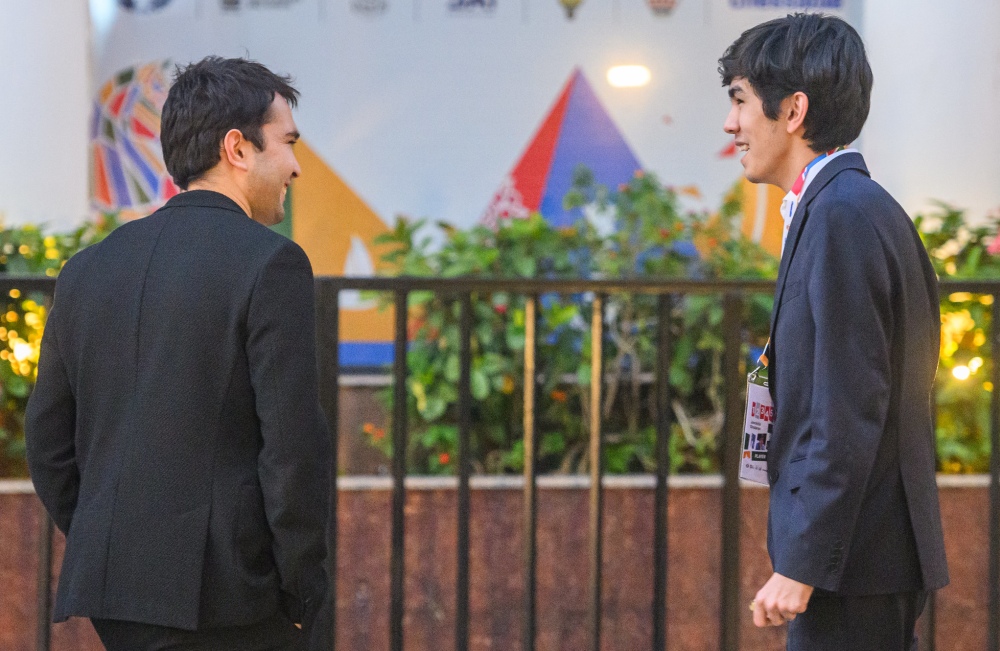
The players return on Saturday, 22 November, for the second classical game of the semifinals. Which of these four will be favoured by Caissa next? We are about to find out.
The action can be followed live on the FIDE YouTube Channel, featuring expert commentary by GMs Jan Gustafsson and Peter Leko.
To watch the games in person, tickets can be purchased [HERE]
Written by WIM Charlize van Zyl (Goa, India)
Photos: Michal Walusza



